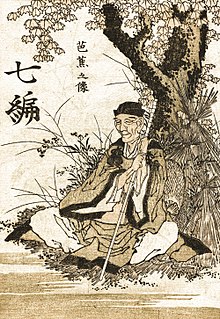
Matsuo Bashō (松尾 芭蕉, 1644 – November 28, 1694; born Matsuo Kinsaku [松尾 金作], then Matsuo Chūemon Munefusa [松尾 忠右衛門 宗房]) was the most famous poet of the Edo period in Japan. During his lifetime, Bashō was recognized for his works in the collaborative haikai no renga form; today, after centuries of commentary, he is recognized as the greatest master of haiku (then called hokku). He is also well known for his travel essays beginning with Records of a Weather-Exposed Skeleton (1684), written after his journey west to Kyoto and Nara. Matsuo Bashō's poetry is internationally renowned, and, in Japan, many...